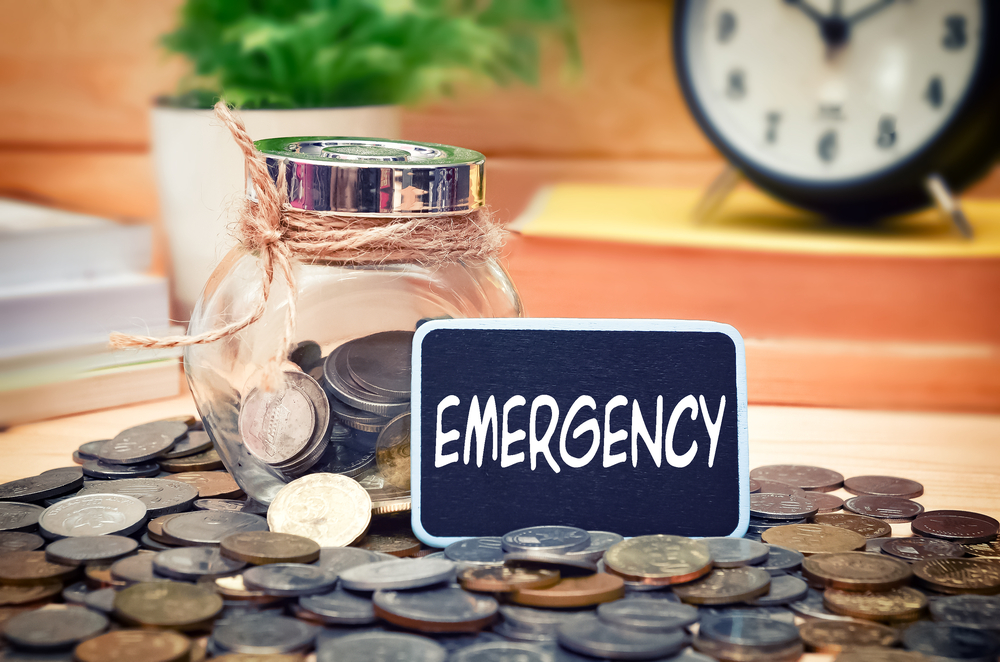Without even realizing it, most people are familiar with protection-first thinking. If you remember travelling on an airplane in a not too distant past, you would recall this important point in the safety demonstrations “In the event of sudden decompression, secure your own oxygen mask before helping others.”
EMERGENCIES ARE SUDDEN
For money emergencies, developing a protection-first plan with a financial professional can help secure your own financial safety before other priorities. In life and in finances, emergencies are sudden. Everyone thinks, “It won’t happen to me.”
EMERGENCIES HAPPEN
But consider this short list of potential emergencies: job loss, accidents, long-term illness leading to loss of income, home or car damage or natural disaster. It doesn’t take long to think of someone in our circle of family or friends who has faced one of these crises in the last year. An emergency can happen to anyone.
THE MAJORITY OF AMERICANS ARE NOT PROTECTED
41% Americans have savings of $1,000 for an emergency. 37% say they would have to turn to credit cards, friends or family, or personal loans to pay for it, putting them in the black hole of debt.1
MEDICAL DEDUCTIBLES ARE ON THE RISE
In the United States, the number one cause of personal bankruptcy is medical costs.2 Furthermore, before the final straw of bankruptcy, many more people struggle to keep up with their medical bills. This is true whether or not a patient has an employer-sponsored healthcare plan.
HEATH SAVINGS ACCOUNTS CAN HELP
In fact, from 2005-2015, the amount employees paid towards their deductibles increased by 229 percent – vastly exceeding wage growth.3 More people could safeguard themselves against high medical costs through a health savings account (HSA), but too few people understand the benefits of these accounts even if it is available to them.4
A BETTER PLAN
By putting your own financial protection first, you create a plan to cover unplanned life events. This can include putting layers of protection in place, life insurance, disability insurance and emergency savings, even before paying down debt.
WHY PROTECTION FIRST?
Even though it’s common to think that your most urgent need is to pay off debt, what happens if you’re paying off debt, but not generating any emergency savings? If you lose your job or are unable to work, you may have to take on new debt to keep paying even just your basic expenses. Then you’re back to square one. A better plan is to help protect yourself from sudden changes through protection layers, including emergency and long-term savings.
—
About the Author
Jerry specializes in retirement, insurance and tax off-set strategies for professionals and small business owners. His focus is to help clients identify their definitions of legacy and financial security while simultaneously implementing innovative strategies to help make those financial goals a reality. For more information on his services, he can be reached at:
JGM Consulting LLC
(714)644-9066
Lic#0H33733
Brought to you by The Guardian Network © 2018, 2020. The Guardian Life Insurance Company of America®, New York, NY
2020-106407 Exp. 10/2022





Leave A Comment